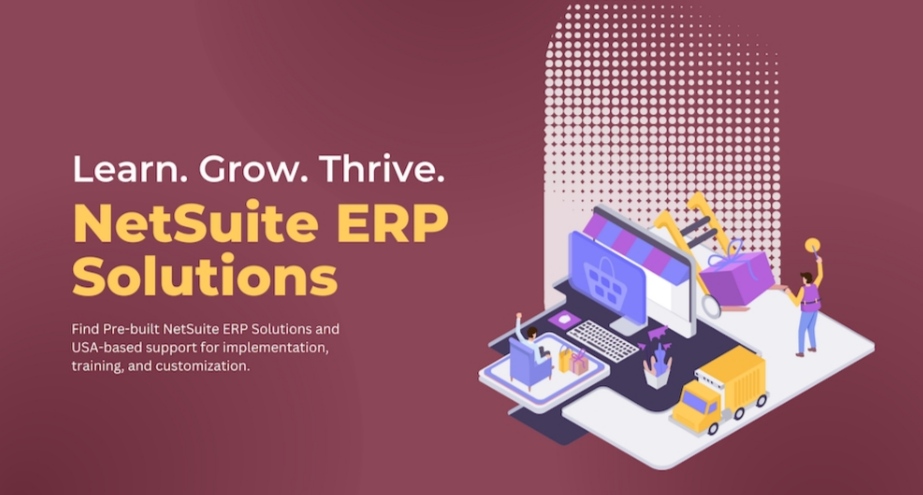Did you know that 75% of businesses fail to fully implement their chosen ERP systems? Implementing NetSuite ERP is more than just a software installation; it’s a strategic move towards operational efficiency and seamless integration. From finance to customer relationship management, NetSuite offers a comprehensive suite of tools designed to streamline core processes. In this guide, we’ll delve into the essential steps and considerations for successful NetSuite implementation. Whether you’re in manufacturing, retail, or services, understanding the intricacies of this process can be the game-changer your business needs.
Understanding the NetSuite Implementation Process
Stages of Implementation
The NetSuite implementation process involves several critical stages. It begins with meticulous planning to define the project scope, set objectives, and establish a timeline. Next comes configuration, where the system is tailored to meet the specific needs of the business. This stage ensures that NetSuite aligns with unique processes and requirements.
Following configuration is data migration, which involves transferring existing data from legacy systems to NetSuite. This step demands careful attention to detail to avoid data loss or corruption. Subsequently, thorough testing is conducted to validate the system’s functionality and ensure that it meets business requirements. Finally, after successful testing, comes deployment, where NetSuite goes live for day-to-day operations.
During each stage of implementation, businesses must work closely with their designated implementation team. Collaboration between business stakeholders and experts ensures that NetSuite ERP aligns seamlessly with specific operational needs.
Importance of Understanding
Understanding the intricacies of the implementation process is crucial for businesses seeking a smooth transition to NetSuite ERP. It enables them to grasp what each stage entails and how it contributes to overall success. By comprehending this process, organizations can effectively plan resources, anticipate challenges, and actively participate in decision-making throughout each phase.
Moreover, knowledge about these stages empowers businesses to communicate their unique requirements effectively during configuration and testing phases—ultimately leading to a more tailored solution that caters precisely to their operational needs.
Key Steps in a Successful NetSuite Implementation
Importance of Clear Objectives
Defining clear objectives and goals for the NetSuite implementation is crucial. It sets the direction for the project and ensures that everyone involved understands what needs to be achieved. Without clear objectives, the implementation process can become chaotic and may not yield the desired results.
Having a set of defined goals allows all stakeholders to align their efforts towards a common purpose, reducing confusion and ambiguity. For example, if one of the objectives is to streamline order processing through NetSuite ERP, every decision made during implementation will be geared towards achieving this goal.
Thorough Business Process Analysis Conducting a thorough business process analysis helps identify areas that need improvement within NetSuite ERP. By analyzing existing processes, businesses can pinpoint inefficiencies or bottlenecks that need addressing during implementation. This step ensures that NetSuite is customized to fit specific business needs and maximizes its potential in improving operations.
- Identifying inefficiencies
- Tailoring NetSuite to specific business needs
Proper Project Management Proper project management, including assigning roles and responsibilities, is essential in keeping an implementation on track. Assigning dedicated team members with clear responsibilities ensures accountability and progress tracking throughout the process.
Cost and Timeline Considerations for NetSuite Implementation
Cost Factors
When implementing NetSuite ERP, the cost can vary based on factors such as company size, complexity of requirements, and customization needs. For example, a small business with straightforward processes may incur lower implementation costs compared to a large enterprise with intricate operations. The need for customizations and integrations can significantly impact the overall expenses.
It’s essential to consider all potential costs associated with NetSuite implementation, including software licensing fees, consulting services, data migration, training, and ongoing support. These expenses contribute to the total investment required for successfully integrating NetSuite into an organization’s operations.
Timeline Considerations
The timeline for implementing NetSuite ERP is another crucial consideration. The duration of the implementation project can range from a few weeks to several months depending on the scope of the project. A smaller company with simpler processes might have a shorter implementation timeline than a larger organization requiring extensive customizations and integrations.
Moreover, businesses should factor in time for testing, user training, and system stabilization during the post-implementation phase. It’s important to recognize that rushing through any phase of implementation could lead to errors or inefficiencies that may impact long-term performance.
Setup, Configuration, and Customization Strategies
Proper Setup and Configuration
When implementing NetSuite ERP, it’s crucial to ensure that the system is set up and configured properly. This involves aligning the software with the specific business requirements to maximize its effectiveness. For instance, if a company requires detailed reporting on sales by region, setting up the system to capture this data accurately is essential.
Proper setup also entails mapping out business processes within NetSuite to streamline operations. This includes defining workflows for order processing, inventory management, and financial reporting. By doing so, businesses can ensure that their unique activities are seamlessly integrated into the ERP platform.
Customization Strategies
Customizing NetSuite should focus on addressing unique business needs while minimizing complexity. For example, if a company has specific requirements for managing recurring billing cycles or tracking project expenses in a particular way, customization strategies should be designed to fulfill these needs without overcomplicating the system.
Balancing out-of-the-box functionality with customizations is key to achieving an optimal NetSuite implementation. Businesses must carefully evaluate which features can be utilized as-is and where custom solutions are necessary based on their budget, time constraints, and long-term objectives.
Company-Wide Training and Post-Implementation Support
Comprehensive Training
To ensure a smooth NetSuite implementation, it is crucial to provide comprehensive training programs for all employees. These programs should equip them with the necessary skills to effectively utilize the NetSuite ERP system. By offering training sessions tailored to different teams and roles, such as sales, finance, or operations, employees can quickly adapt to the new technology. For example, providing hands-on training for managers on how to generate custom reports within NetSuite can enhance their ability to make data-driven decisions.
Implementing a thorough user acceptance testing phase during the implementation project enables internal teams to identify any issues early on and address them promptly. This ensures that when the system goes live, employees are already familiar with its functionalities and can seamlessly integrate it into their daily tasks.
Ongoing Post-Implementation Support
Following the initial setup and configuration of NetSuite ERP, ongoing post-implementation support is essential for a successful transition. This includes providing troubleshooting assistance and user support as employees navigate through any challenges encountered while using the new system. Regular updates and maintenance should be part of this strategy to keep the system running smoothly over time.
Having professional services available for continuous guidance after implementation allows companies to optimize their use of NetSuite based on evolving business needs. This ensures that executives have access to expert advice when making strategic decisions related to leveraging NetSuite’s capabilities.
Best Practices and Common Pitfalls in NetSuite Implementation
Importance of Thorough Testing
Thorough testing is crucial to ensure that the NetSuite implementation meets the organization’s requirements. It involves checking every aspect of the system, from basic functionalities to complex processes. By conducting thorough testing, organizations can identify and address any issues before they impact daily operations.
Data Validation for Accuracy Data validation is an essential step in NetSuite implementation. It ensures that the data being migrated into the system is accurate and complete. Without proper data validation, organizations risk encountering errors or inconsistencies in their data, which can lead to operational disruptions and decision-making challenges.
Engaging experienced NetSuite consultants or partners during NetSuite implementation can provide valuable insights into best practices related to testing and data validation. These professionals bring a wealth of experience from previous implementations, allowing them to anticipate potential issues and develop effective strategies for testing and validating data.
- Thorough testing helps identify issues before they affect daily operations.
- Data validation ensures accuracy and completeness of migrated data.
- Experienced consultants offer valuable insights based on prior implementations.
Why Choose Anchor Group for NetSuite Implementation?
Expert Team
At Anchor Group, our NetSuite implementation guide is led by an expert team with extensive experience in deploying NetSuite solutions. Our team members are certified professionals who understand the intricacies of the platform and can navigate through potential challenges seamlessly.
We have successfully executed numerous implementations for businesses across various industries, ensuring a smooth transition to NetSuite’s robust ERP system. Our expertise allows us to tailor the implementation process to suit the unique requirements of each client, maximizing efficiency and minimizing disruptions.
Our dedicated experts work closely with clients throughout the entire implementation journey, providing guidance, support, and training to ensure that they are equipped to leverage NetSuite’s full potential once the system is live.
Customized Approach
One size does not fit all. At Anchor Group, we recognize that every business has its own set of needs and objectives. Therefore, we take a customized approach to each implementation project.
We conduct a thorough analysis of our clients’ existing processes and workflows to identify areas where NetSuite can bring about significant improvements. By tailoring the configuration and setup of NetSuite based on specific business requirements, we ensure that our clients derive maximum value from their investment in the platform.
Our customized approach also extends to post-implementation support, where we continue to provide assistance as businesses adapt to their new ERP system.
Conclusion and Next Steps for NetSuite ERP Success
You’ve now gained a comprehensive understanding of the NetSuite implementation process, from key steps and cost considerations to essential elements of an effective ERP implementation plan. As you embark on this journey, remember that successful implementation doesn’t end with setup and configuration; it extends to company-wide training and post-implementation support. Avoid common pitfalls by following best practices and considering Anchor Group for your NetSuite implementation needs.
Now, it’s time to take action. Assess your readiness, engage stakeholders, and craft a robust implementation plan. Leverage the insights gained here to ensure a smooth and successful NetSuite ERP implementation. Your proactive approach today will pave the way for seamless operations, improved efficiency, and sustained growth tomorrow.










Leave a Reply